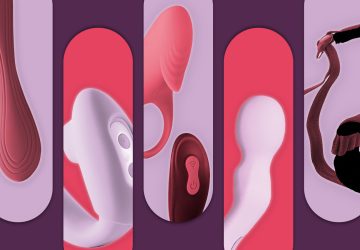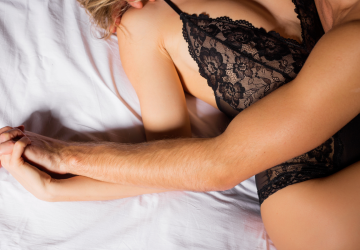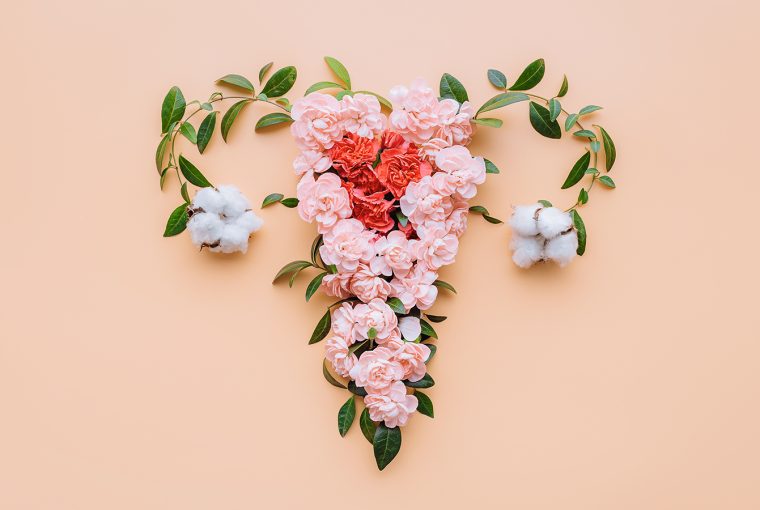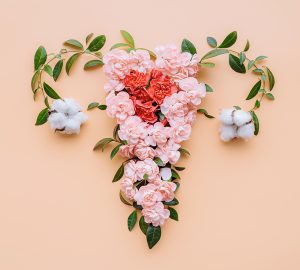How Your Cycle Affects Your Sex Drive
Feeling a little less interested in sex lately? Like the spark’s gone out? It could be related to what time of the month it is. Hormone levels affect sexual desire more than you might realize. The stages of your menstrual cycle do, in fact, play a big role in influencing sex drive/libido. The relationship between hormones, cramps, emotions – coupled with attitudes about menstruation itself – all come together to impact your desire for intimacy.
Phases of Your Cycle
A menstrual cycle can vary in length from person to person but it typically lasts 21-35 days. It’s controlled by hormones like estrogen and progesterone that work together to thicken the lining of the uterus in preparation for pregnancy. If an egg is fertilized, the body won’t shed the lining. If not, the lining is shed, and the process starts again.
During ovulation, the ovaries release an egg, and estrogen levels peak, making you feel more interested in sex. However, during your period, your hormone levels drop, which can lower your sex drive and/or make sexual activity less comfortable.
During the follicular phase, the first two weeks of your cycle, your libido may be at its highest due to an increase in estrogen.
However, during the luteal phase, two weeks before your period, estrogen levels drop while progesterone and prostaglandin hormones rise, which can lead to vaginal dryness, decreased libido, and more buzzkills… Prostaglandin contributes to cramps by contracting the smooth muscle of the uterus, which can also cause nausea and diarrhea. When you’re dealing with the pain of cramps (and possibly even more uncomfortable elements on top of that), it’s not exactly easy to feel sexy and in the mood.
As the menstrual phase approaches, prostaglandin levels decline, and menstrual cramps usually subside.
Being aware of these phases enhances your connection to your own body and empowers you to communicate effectively with your partner about your needs. Remember, there’s nothing wrong with experiencing fluctuations in your sex drive during different phases of your cycle – it’s a normal part of menstruation!
Menstrual Shame & Embarrassment
Menstrual shame is real. Worrying about a partner’s response to menstrual blood can be a source of anxiety and embarrassment, leading to avoidance of sexual activity.
It’s important to normalize menstrual blood and let go of any shame we’ve been socialized to have about it. Menstruation is a normal part of life and should not be stigmatized.
Talk to your partner(s) about your feelings of shame and desire to work through them and experiment with different sex positions or use a menstrual cup to help ease anxiety around sexual activity during menstruation.
Strategies for Managing Your Cycle & Sex Life
Whether you experience painful cramps, heavy bleeding, or mood swings, there are strategies you can use to help maintain your sex life throughout your cycle.
One of the most effective strategies is exercise. Regular physical activity can help reduce cramps, improve circulation, and boost your mood.
Eating a healthy diet rich in fruits, vegetables, and whole grains can provide the nutrients your body needs to function at its best.
Taking time for self-care activities like meditation or a warm bath can help you relax and recharge during the most tiring phases of your cycle.
Remember that it’s okay to take a break from sex altogether if that’s what feels most comfortable for you.
There is a significant link between menstrual cycles and sex drive, and it’s important to consider ways to manage these effects. By talking to your partner(s), exploring different options to alleviate physical discomfort, and embracing your body’s natural cycles, you can maintain a healthy and enjoyable sex life all month. Don’t let your cycle hold you back from enjoying your sexuality to the fullest.









